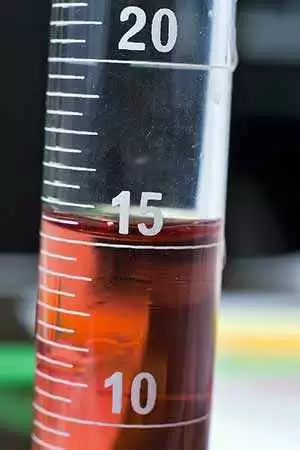Celiac.com 07/26/2012 - For people with celiac disease, the average delay from first symptoms to professional diagnosis is almost 12 years. Moreover, once those people seek medical attention, there is a high risk of misdiagnosis. In fact, researchers estimate that seven cases of celiac disease go undiagnosed or misdiagnosed for every case that is correctly identified.
 Current tests for celiac disease require a doctor to conduct a biopsy, followed by a professional analysis of the biopsy results, usually at a specialized lab. Using this method, each test is invasive, often takes several days to produce results, and costs many hundreds of dollars.
Current tests for celiac disease require a doctor to conduct a biopsy, followed by a professional analysis of the biopsy results, usually at a specialized lab. Using this method, each test is invasive, often takes several days to produce results, and costs many hundreds of dollars.
Celiac.com Sponsor (A12):
That is all set to change thanks to a pioneering new testing system that offers quick, accurate, cost-effective diagnosis and monitoring of celiac disease. The pioneering new test was developed with EU-funding, and will soon undergo clinical trials in Slovenia. If those trials are successful the test should be available in hospitals and clinics across Europe and elsewhere within a few years.
The technology was developed in the celiac disease-Medics project by a consortium of 20 partners with funding from the European Commission. The system is the result of a confluence of innovative technologies from several scientific disciplines including microfluidics, nanotechnology and genetic testing.
In addition to celiac disease, the technology can also be used to diagnose and monitor a wide variety of other diseases, including autoimmune disorders, such as rheumatoid arthritis, spondylitis, thyroiditis, and even cancer - basically any disorder that can be detected by looking for DNA or protein markers.
Before celiac disease-Medics, explains project coordinator Ciara O'Sullivan, a research professor in the Nanobiotechnology & Bioanalysis Group at Universitat Rovira i Virgili in Spain, "there was nothing like this available for celiac disease."
Rather than costs of several hundred dollars for a normal biopsy and analysis for celiac disease, the new celiac disease-Medics test will cost less than twenty Euro, and the biomedical interface device a one-time clinic expense of about 6,000 Euro.
Instead of an invasive biopsy, the new test requires only one drop of blood placed into a device that looks like a credit card, but incorporates several innovative components: a micro-structured fluid network for precise control reagents, a specially adapted surface for capturing the biological components being sought, and an electrically driven sensor system that provides fast detection.
Once the sample is taken, the disposable device will be placed into a biomedical interface instrument and analysis of the blood sample is carried out in a matter of minutes. Results can then be immediately output to the hospital information system and added to the patient's electronic health record (EHR).
Prof O'Sullivan says that the device provides both DNA testing - specifically for variants of the HLA gene associated with the disease - and testing for gluten antibodies. This is important, because testing either alone can return false positives. Testing for both means the results ensures accurate results.
Because the device can detect gluten antibodies, it can be used to monitor the patient's response to gluten-free treatment
Trials will be conducted over the summer on two to three hundred patients at University Medical Centre Maribor in Slovenia. Results will be compared to the results of celiac tests done with analyzed tissue samples from biopsies.
'We hope to have a product on the market within two years,' Prof O'Sullivan says. 'We are also looking to launch a follow-up project, probably with public funding, to adapt and extend the system to test for and monitor many other types of diseases.'
Source:
- Open Original Shared Link







Recommended Comments